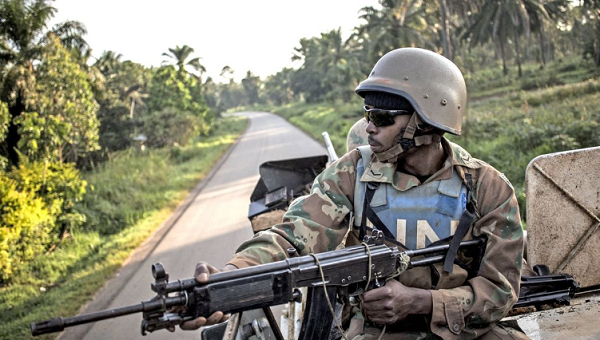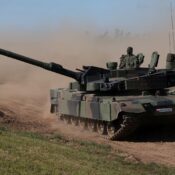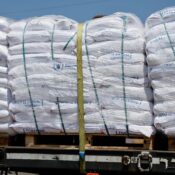
UN peacekeepers have been deployed in the Democratic Republic of Congo (DRC) to address a recent surge in violence
UN peacekeepers are now deploying troops to additional areas in the eastern Democratic Republic of Congo in response to a recent surge in violence perpetrated by multiple armed groups.
According to Farhan Haq, deputy spokesman for UN Secretary-General Antonio Guterres, the deployment of troops was prompted by a clash between members of the Zaire and CODECO armed groups at a mining site near Bunia in Ituri Province, as reported on Wednesday.
Based on the most recent report by UN experts, the conflict has intensified, in part due to the actions of the Voluntary Combatants for the Defence of the Homeland (Wazalendo). While they are fighting against the rebels, their presence is also causing insecurity for civilians.
Wazalendo frequently asserts their commitment to protecting their homeland and combating the M23 in North Kivu.
They are no longer allowed to carry weapons in Goma, the provincial capital, according to the government’s ban.
“We have made several decisions, especially regarding our stance on seeing individuals from the Voluntary Combatants for the Defense of the Homeland (Wazalendo) in town carrying weapons,” stated Maj-Gen Peter Cirimwami Nkuba, the military governor of North Kivu. Although the government acknowledges the importance of supporting those who oppose foreign interference, it also expresses deep concern about the atrocities.
Patrick Muyaya, Government Spokesman, expressed that it is important to acknowledge the Congolese people’s right to protect their homeland, even though there are individuals who engage in acts of violence. However, it is crucial to emphasize that this should never justify targeting innocent civilians.
According to UN figures, there have been 100 civilian deaths as a result of a series of attacks by the Islamist Allied Democratic Forces (ADF) in Ituri and North Kivu provinces since May 25.
ADF has become a major concern for the country, following the M23. The ADF are not originally from Uganda, where they are labeled as terrorists, but they are not inherently Congolese.
The ADF have caused North Kivu to experience a period of mourning since late last month. They have been residing in the eastern Congo forests since 1995, but the majority of their attacks have been carried out in Uganda.
The recent series of violent attacks occurred in Beni territory, where the Ugandan and Congolese armies are expected to be carrying out their operations. Since November 2021, the two armies have been collaborating to locate and apprehend the ADF in a joint operation.
ADF military activities have seen a significant increase since mid-October 2023, with a particular focus on the northern part of Beni territory and the south of Ituri province. In 2023, the ADF continued to be the leading armed group responsible for a significant number of murders in the DRC. According to a report by UN experts, over 1,000 individuals, primarily civilians, lost their lives.
Despite this tragic event, the Congolese government maintains that the operation successfully weakened the attackers’ power.
“The efforts to apprehend these terrorists have resulted in the successful elimination of several individuals and the liberation of a significant number of civilian hostages,” stated a government communication.
The increase in violence is causing significant concerns. Bruno Lemarquis, the UN Humanitarian Coordinator in DRC, expressed serious concern regarding the ongoing violence and the worsening humanitarian situation.
“If this violence continues, it could worsen the already fragile humanitarian situation in the provinces of lturi, North Kivu, and South Kivu,” he stated. Between January and April 2024, over 900,000 individuals were registered as newly displaced in this area. This brings the total number of displaced people in these three provinces to over 5.6 million, out of a countrywide total of 7.3 million.
Acts of aggression
The number of victims continues to increase, especially due to violence committed by armed actors, as reported by the UN. Over the course of the first five months of this year, a staggering number of lives were tragically lost in Ituri. Violent incidents targeting innocent civilians occurred in the territories of Djugu, Irumu, and Mambasa, where the ADF and the local armed group Codeco are active.
Juvenal Munubo, a former MP, mentioned that the Democratic Republic of Congo’s struggle against M23, which Kinshasa accuses Rwanda of supporting financially, has put a strain on the country’s capabilities.
“It is undeniable that the military strategy has reached its limitations,” he commented on the country’s efforts to combat armed groups in the troubled provinces. Is it not time, five months after the elections, to organize a security forum in the east to assess past strategies and enhance the safety of Congolese citizens? According to Mr. Munubo’s statement.
Some members of civil society in the DRC claim that the government’s attention is disproportionately directed towards M23, while neglecting other armed groups. The government strongly denies these accusations and insists that comprehensive efforts are being made to address all issues.
Meanwhile, the Congolese army has been engaged in a confrontation with the M23 in the town of Kanyabayonga. Kanyabayonga is a strategically important area, with a population of over a million people.
Since February, the FARDC and the Southern African Development Community mission in the DRC have been primarily focused on addressing the M23 situation. However, recent outbreaks of violence from other groups have become a significant source of diversion.
During this critical period of mounting pressure in the towns, the SADC troops have strategically stationed themselves in and around the city of Goma to protect against the M23.
According to local sources, there have been reports of ongoing combat involving the troops. In late May, 13 South African soldiers from the SADC mission sustained injuries, with one losing their life.
The SADC Mission in the Democratic Republic of Congo, led by Maj-Gen Monwabisi Dyakopu, has emphasized that the troops have been given an offensive mandate to combat all forms of violent groups.
Operational activities
“In line with SAMIRDC’s mandate, in collaboration with the FARDC, our troops will carry out operations to eliminate hostile forces and illegal armed groups in the eastern region of the DRC. Our objective is to establish and uphold peace and security, establish a safe environment, and safeguard civilians and their belongings in the face of imminent threats and attacks,” stated Gen Dyakopu.
According to him, these operations are focused on establishing supply routes and ensuring the safety and freedom of civilians. The goal is to allow communities to carry on with their daily lives without any interference or threat.
During operations, he emphasized that SAMIDRC prioritizes the respect for human rights and complies with the provisions of the law of armed conflict under international humanitarian law.
However, the sudden emergence of the ADF after a period of relative calm may disrupt the strategy that was originally centered around M23.
All Categories
Recent Posts
Tags
+13162306000
zoneyetu@yahoo.com



